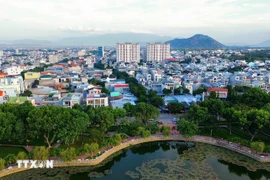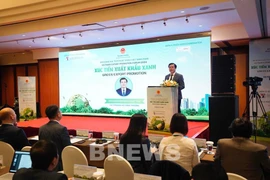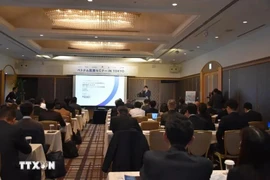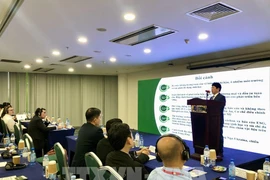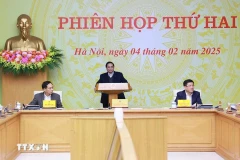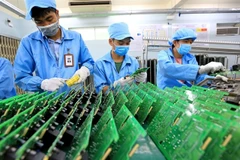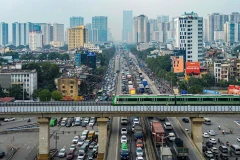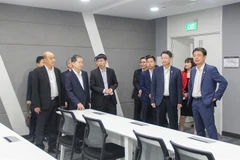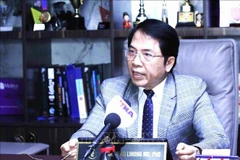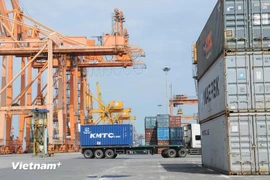
Hanoi (VNA) - Global challenges such as climate change and sustainable development are driving the urgent need for innovation in all fields in Vietnam and worldwide. As a result, experts participating in a recent conference in Hanoi aimed to build a collaborative environment, connecting researchers and innovators to explore the latest green solutions and contribute to sustainable development in Vietnam and globally.
The 2024 Open Innovation International Workshop was held on December 6-7 in Hanoi, co-hosted by VinUniversity, the Ministry of Science and Technology, Saïd Business School (University of Oxford), SC Johnson College of Business (Cornell University), and the Center for International Development (Duke University), under the theme "For a Green Future."
The event gathered international experts in innovation, green policies, green technology, sustainable environments, and green business. Its primary goal was explore solutions to promote global green transformation, mitigate the impacts of climate change, and build models for sustainable growth.

At the workshop, Professor Soumitra Dutta, Dean of Saïd Business School at the University of Oxford, UK, emphasised that for Vietnam to drive green economic growth and innovation, it's crucial to develop human potential, particularly in the industrial sector. In a world that is rapidly evolving technologically, without innovation, Vietnam risks falling behind, he noted.
According to the Vietnam Industry Innovation Research project, Vietnam has made significant strides in the innovation index rankings over the last decade, but its pace has slowed in recent years. Dutta stressed the need to invest more in innovation to keep up with other countries that are heavily investing in this area.
Meanwhile, Professor Edmund J. Malesky, Director of the Centre for International Development at Duke University, the US, presented the importance of policies as catalysts to promote green growth.

Malesky presented five key recommendations for Vietnam: long-term planning, effective financial support for green innovation businesses, prioritization of green transformation policies, financial and investment support through public-private partnerships (PPP), and ensuring fairness for those affected by the green transformation, such as farmers and forestry workers. Authorities must implement mechanisms to protect those who might be negatively impacted by the green transition.
The workshop included parallel discussions on topics like green transformation, green education, and green healthcare, with nearly 250 participants from 12 countries. It provided an opportunity to connect scientists, businesses, and the government in promoting innovation and sustainable development in Vietnam.
This year's workshop brought together public sector leaders, experts, researchers, and business representatives to discuss the latest trends in innovation and their application for sustainable development.
The highlight of the event was that the outcomes went beyond discussions and aimed at applying solutions in practice. Global commitments have already been turned into national strategies, and through the workshop, they will be translated into local, sectoral, and business action plans. This was the first international forum in Vietnam that focused on innovation for green economic development with an interdisciplinary approach involving academia, policy-making, and practice./.
